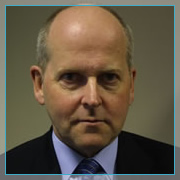Remembering Martin Langford
About the author
Our guest authors are what make PR Place such a vibrant hub of information, exploration and learning.

This is an article by Robert Minton-Taylor.
Martin Langford, who sadly passed away on 17 August following a short illness, was a towering figure in the world of issues and crises management.
He was diagnosed with motor neurone disease (ALS) earlier this year, which progressed very rapidly.
Martin was deservedly named as the “The Master of Disaster” by the UK’s Daily Telegraph newspaper in 1990 for his legendary expertise in the field of crisis management, most of it provided while at Burson-Marsteller, the firm that he served so loyally for 31 years from January 1971.
As joint CEO of the London office with Edna Kissman in the late 1980s/early 1990s, Martin and Edna turned 30% loses at the agency to 28% profits.
That would suggest they were faceless cost cutting bureaucrats. Far from it. They were compassionate and empathetic figures whose consideration for their employees in a tough and increasingly turbulent world was to be applauded. Indeed, so much so that at the time the trade paper PRWeek dubbed the agency “the happiest shop in town”. I can think of few CEOs that I have known in my 48 years in public relations and journalism that I would willingly wish to serve, but Martin and Edna are two of them.
I joined Burson-Marsteller in 1979 and during my 14 years with the company Martin was my mentor. His kindly advice when I became a board director at the consultancy was invaluable during the difficult recessionary period of the early 1990s. When I moved to Yorkshire in 1994 to take-up the post of managing director of a PR agency in Leeds Martin’s thoughtful guidance was really helpful.
During his lifetime, Martin reputedly handled over 30 plant closures in 12 countries, created crisis planning systems for more than 50 companies, trained thousands of executives in Asia, Australia and Europe in media and crisis communications and managed international repositioning and rebranding programmes for several multinational corporations.
Martin was never visibly harried by events and his polite and well-reasoned managerial style was always impressive. I think that’s what helped make him such a brilliant crisis counsellor. He won plaudits for his serene diplomacy rather than grandstanding to make his point heard.
His range and depth of crisis handling was truly staggering – from the aftermath of Esso’s Melbourne refinery explosion, which left the whole of the state of Victoria, Australia, without gas for a fortnight, to computer maker Dell’s interests in China when a disgruntled Beijing dealer attempted to have the company debarred from the Chinese market.
Among the most celebrated crises that Martin participated in were Johnson & Johnson’s Tylenol pain relief recall, where he counselled on the crisis in the only non-US Tylenol market, Ireland. Indeed, his deft handling of the situation made a brilliant case study in crisis management for PR text books as did the famous Perrier mineral water recall and re-launch he was involved in. There aren’t many individuals who have that kind of track record in the industry.
There are countless books written on issues and crisis management, yet for me Martin’s numerous essays on the subject and the chapter he authored for the first edition of “Exploring Public Relations” in 2006 are standout texts. Why? Because they are written, in clear and unequivocal language, by an executive who has been at the heart of managing many global crisis scenarios.
Martin was great at conveying to multicultural audiences how a crisis would pan out in reality rather than just in the theoretical context of a textbook. But of course like all great teachers and masters of their subject Martin made crisis communications management very accessible and straightforward to a wide variety of audiences. Important when you are dealing with crises than span the globe and for executives whose mother tongue is not English. We all learnt a lot from him.
When Martin left the London office of Burson-Marsteller in the mid-1990s he was subsequently based in Singapore as chairman of the company’s ASEAN offices before setting up the boutique PR agency of Kissmann Langford in 2002 with his former Burson-Marsteller colleague Edna Kissmann. They went on to work together for some of the world’s biggest organisations.
He was a Fellow of the Institute of Public Relations and was Chairman of the then Public Relations Consultants Association (now known as the Public Relations and Communications Association) in the UK from 1992–1994.
Martin was truly a legend in his own lifetime and was the deserved recipient of many PR industry awards including being named by PRWeek as “Public Relations Professional of the Year”. He will be missed by many people.